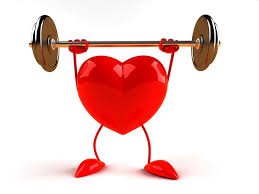How to Take Care of Your Heart

How to Take Care of Your Heart

Roses are red,
Violets are blue,
Your heart-health is precious
And so are you!
February may be the month of love, but it’s also Heart Month in the UK and other countries, as more people raise awareness about the importance of having a healthy heart.
The conversation between diet and heart health is so old, that we know what we should be doing. Watching our weight. Watching our total fat intake and keeping saturated fats low. Monitoring how much salt we eat. Eating more fibre rich food - like beans and oatmeal.
This is good advice, but we also need a balance of fatty acids.
A Balancing Act
In the early days medical advice on dietary fats was basic: saturated fats were bad and polyunsaturated fats were good.
But now things are complex. This is due to growing concerns that we are not eating the right balance of Omega-3 and Omega-6 fats: which affects our health.1
It is too simple to say that Omega-3s are good and Omega-6s are bad, as neither of them are inherently “bad.”
They’re called ‘essential’ fatty acids because our body can’t make them, we get them from foods we eat. In small amounts, essential fatty acids serve important functions in our body like supporting blood circulation, vision and brain function2.
The problem is that we (generally) eat too many Omega-6s and not enough Omega-3s. Today’s diet is full of Omega-6: chips, salad dressings, cakes, pastries etc. At the same time, we fall short when it comes to eating foods rich in Omega-3: fish, vegetables, walnuts and flaxseeds.
One of the best ways to get more Omega-3s is by eating more fish meals in the week, to increase our healthy EPA and DHA levels. These particular fatty acids are found in fish and can help to maintain a normal functioning cardiovascular system.3
But many don’t eat enough fish meals a week. Fresh fish is great, but canned fish is easy and convenient! If you don’t like eating fish, you can also take fish oil supplements (but remember: food supplements shouldn’t be used as a substitute for a varied diet).
Eat your Way to a Healthier Heart
• Eat more fruits, vegetables, whole grains and beans as they deliver vitamins, minerals, fibre and antioxidants
• Keep total and saturated fat intakes under control by eating healthy low-fat proteins
• Eat unsaturated fatty acids from foods like fish, nuts, avocado and olive oil
• Choose non-fat or low-fat dairy products, poultry breast, lean cuts of red meat and plant protein sources like beans, lentils and tofu
• Limit added fats for example by reducing dressings, spreads, sauces and fried foods
• Avoid high-processed foods
• Eat more fibre rich foods (sweet potatoes, berries, plums, broccoli and carrots) 4
When it comes to matters of the heart, it’s so much more than just the people we love. Remember to take extra care of the heart that matters most: yours!
1 EFSA, EFSA Journal 2011;9(4):2078 2 EFSA, EFSA Journal 2010;8(10):1796 and EFSA, EFSA Journal 2011;9(4):20783 EFSA, EFSA Journal 2011;9(4):2078, EFSA, EFSA Journal 2010;8(10):1796, EFSA, EFSA Journal 2011;9(4):2078 4 EFSA, EFSA Journal 2009;7(9):1254, EFSA, EFSA Journal 2011;9(6):2207
